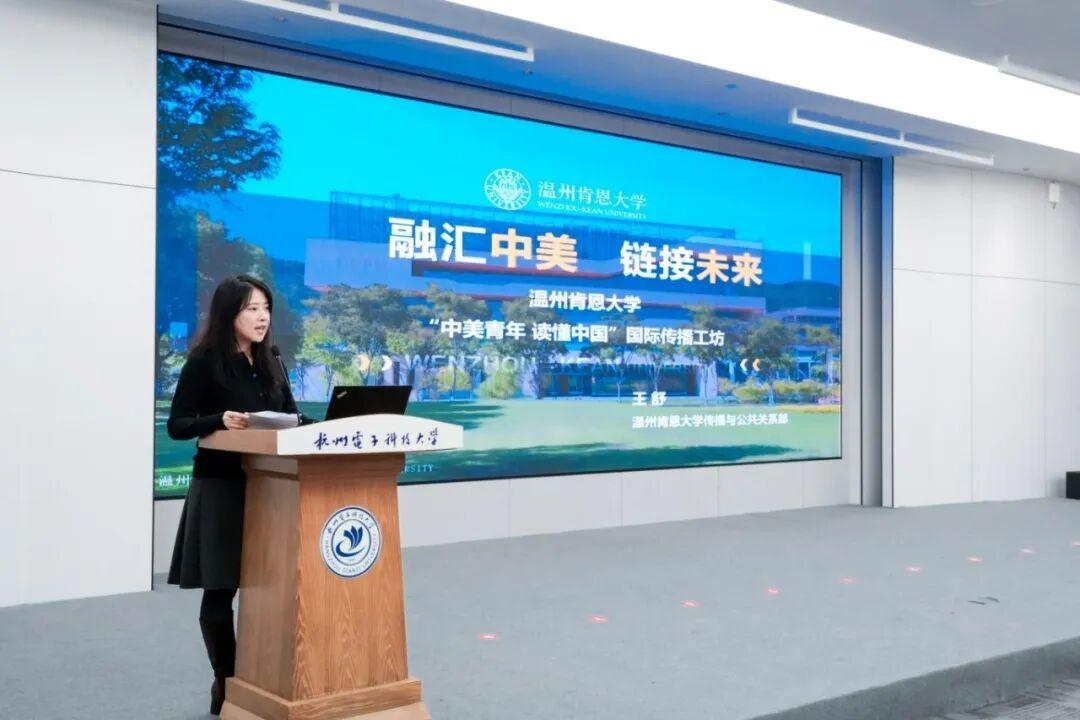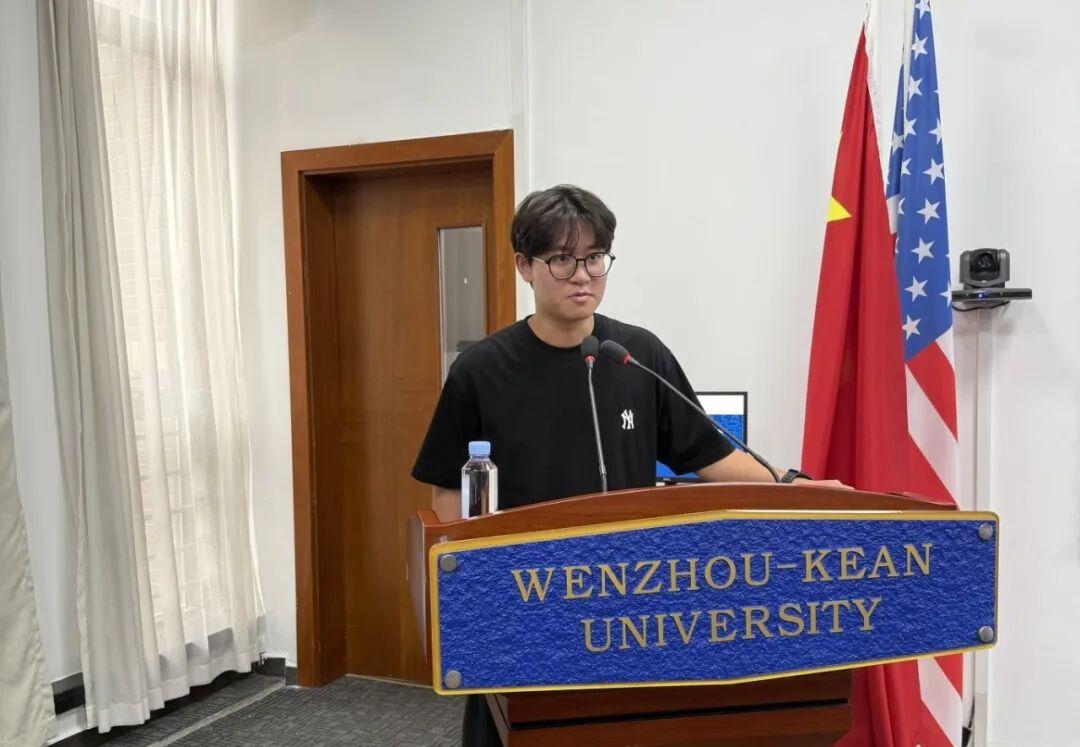
Bo Wu
-
职位:计算机科学与技术讲师
-
学院:理工学院
-
办公室:GHK C227
-
邮箱:
Education background
B.S. on Computer Science
FuDan University,
M.S. on Computer Science
FuDan University , Graduate school
Courses teaching in WKU
CPS 3250 Computer Operating Systems;
CPS 2232 Data Structure and Algorithms;
CPS 2231 Computer Organization and Programming;
CPS 1231 Fundamentals of Computer Science
CPS 1032 Microcomputer Applications
Tech 3525 Introduction to Unix/Linux
Biography
Senior IT professional with extensive experience on both service solution and service delivery for banking sector, healthcare insurance industry etc. including full lifecycle enterprise application design and development experience and quality management, process improvement, and IT governance experience;
Academic Qualifications:
- Master of Computer Science, FuDan University, Graduate School, 3-year post-graduate courses, majored in Computer distributed system. Dissertation << The Research and Design of Remote Procedure Calls and its Implementation in Distributed System>>;
Bachelor of Computer Science, FuDan University, 4-year under-graduate courses, majored in Computer system architecture; Dissertation<< TCP/IP Research and its Implementation in UNIX Kernel>>
Research interests
Rho-Pol II signaling in eukaryotes
Our research has uncovered a novel Rho-Pol II signaling pathway that is highly conserved across eukaryotes. While Rho GTPases—such as Rho, Cdc42, Rac, and the plant ROP subfamilies—are primarily recognized for their role in regulating the cytoskeleton, they also function as pivotal regulators in the transcriptional control by RNA polymerase II (Pol II). Traditionally, upstream signals are amplified through the MAP kinase cascade, which ultimately leads to the recruitment of Pol II to facilitate transcription. In contrast, our newly established model bypasses this by directly targeting the phosphorylation status of the C-terminal domain (CTD) of Pol II. This direct modulation results in rapid and large-scale shifts in gene expression. Additionally, our findings indicate that cell morphogenesis is predominantly governed by CTD activity, with alterations in CTD phosphorylation significantly impacting cell morphology. Given the importance of morphogenesis in early carcinogenesis, our focus is on identifying the factors that maintain the balance between cell morphology and transcriptional regulation, which could hold potential for novel therapeutic interventions.
Due to the high level of rigor in literature review, phenotypic analysis, and experimental techniques required, this project is only open to students who meet the following criteria: proficient in English, maintain a GPA above 3.0, exhibit excellent time management skills, possess a deep passion for research, and demonstrate strong interest in molecular and cell biology, signal transduction, genetics, biochemistry, and bioinformatics.
Host-Microbe Interaction
- Pathogenesis of atopic dermatitis (AD)
AD is a chronic inflammatory skin disorder, characterized by pruritic eczematous lesions, that affects millions worldwide. The pathogenesis of AD is believed to involve a complex interplay between skin barrier integrity, internal inflammatory responses, and external microbial communities. Our research focuses on two key areas:
• The role of microbes in AD pathogenesis: Building upon an incidental discovery from the BIO3315 laboratory course and through collaboration with hospitals, we have identified additional bacterial species beyond Staphylococcus aureus that are highly correlated with AD. At present, we are investigating the pathogenic mechanisms using cell-based models.
• Filaggrin (FLG) mutations and dysregulation: FLG represents one of the most significant genetic predispositions for AD. However, the study of FLG has been challenging due to the gene’s substantial length, repetitive structure, and intricate hydrolytic regulation. Our lab has pioneered a novel methodology that overcomes these challenges, enabling the efficient screening of FLG mutations and the exploration of their hydrolytic mechanisms.
This AD project, an original WKU research initiative, is led primarily by undergraduate students. The project is open only to those proficient in English, able to maintain a GPA above 3.0, and demonstrate a strong interest in genetics, microbiology, biochemistry, and bioinformatics. - RSI invasion switch
The α-Proteobacteria RSI invasion switch is critical in the invasion and symbiosis processes of Agrobacterium, Rhizobium, Brucella, and Bartonella. The ExoR protein, a central player in the RSI switch, will be the subject of detailed biochemical and in vivo studies. This project, which originated at MIT, is conducted in collaboration with Professor Haiping Chen at CUNY. All research progress in our lab has been achieved by WKU undergraduate students. Like other projects, this one is open to students who are proficient in English, maintain a GPA above 3.0, and have a deep interest in microbiology, biochemistry, and bioinformatics.
Joining our research
All current research projects in the lab are exclusively open to undergraduates. For graduate students interested in our research, thorough reading of relevant literature is expected prior to contacting us. Your knowledge and experimental skills will be assessed through both written and practical evaluations. Please carefully evaluate your readiness before reaching out.
无热爱,不科研!
"No passion, no research"—please refrain from inquiring if you lack dedication.
Awards
- 2010, Liyuehua Zhu Outstanding Doctoral Award (Chinese Academy of Sciences)
- 2010, Yihai-Kerry Enterprises Award (The Institute of Genetics and Developmental Biology)
Student awards
-
-
-
- Chen Chen, Jinyang Jiang, Qizhen Zhong, 2023 8th National Life Science Competition, National third prize.
- Shiqi Jin, Xindi Zou, Keshuo Luo, Ziyu Zhang, and Bingyan Yuan, 2023 8th National Life Science Competition, Zhejiang Provincial third prize.
- Chen Chen and Jinyang Jiang. Best oral presentation award in 2023 WKU Student Research Day.
- Zhonghao Chen and Shiqi Jin. Best oral presentation award in 2022 WKU Student Research Day.
-
-
Changyi Sun. Best oral presentation award in 2021 WKU Student Research Day.
Selected Publication
- Zhou, X., Zhang, B*. (2024). Enhancing Microbiology Laboratory Course: A Practical Approach to Project-Based Learning via Skin Bacteria Analysis. The American Biology Teacher. (*Corresponding author, in press)
- Zhou, X., Xu, Y., Zeng, Y., X., & Zhang, B*. (2024). Revamping of Microbiology laboratory teaching in universities through project-based learning. Microbiology China, 51(4), 1281-1289. (*Corresponding author)
- Zhang, B., Zhong, X., Sauane, M., Zhao, Y., & Zheng, Z. L. (2020). Modulation of the Pol II CTD Phosphorylation Code by Rac1 and Cdc42 Small GTPases in Cultured Human Cancer Cells and Its Implication for Developing a Synthetic-Lethal Cancer Therapy. Cells, 9(3), 621
- Gharbaran, R., Zhang, B., Valerio, L., Onwumere, O., Wong, M., Mighty, J., & Redenti, S. (2019). Effects of vitamin D3 and its chemical analogs on the growth of Hodgkin’s lymphoma, in vitro. BMC research notes,12(1), 216.
- Zhang, B., Yang, G., Chen, Y., Zhao, Y., Gao, P., Liu, B., … & Zheng, Z. L. (2016). C-terminal domain (CTD) phosphatase links Rho GTPase signaling to Pol II CTD phosphorylation in Arabidopsis and yeast. Proceedings of the National Academy of Sciences, 201605871.
- Zheng, Z. L., Zhang, B., & Leustek, T. (2014). Transceptors at the boundary of nutrient transporters and receptors: a new role for Arabidopsis SULTR1; 2 in sulfur sensing. Frontiers in plant science, 5.
- Zhang, B., Pasini, R., Dan, H., Joshi, N., Zhao, Y., Leustek, T., & Zheng, Z. L. (2014). Aberrant gene expression in the Arabidopsis SULTR1; 2 mutants suggests a possible regulatory role for this sulfate transporter in response to sulfur nutrient status. The Plant Journal, 77(2), 185-197.
Wuriyanghan, H#., Zhang, B#., Cao, W. H#., Ma, B., Lei, G., Liu, Y. F., … & Cao, Y. R. (2009). The ethylene receptor ETR2 delays floral transition and affects starch accumulation in rice. The Plant Cell, 21(5), 1473-1494. (#: co-first author)




